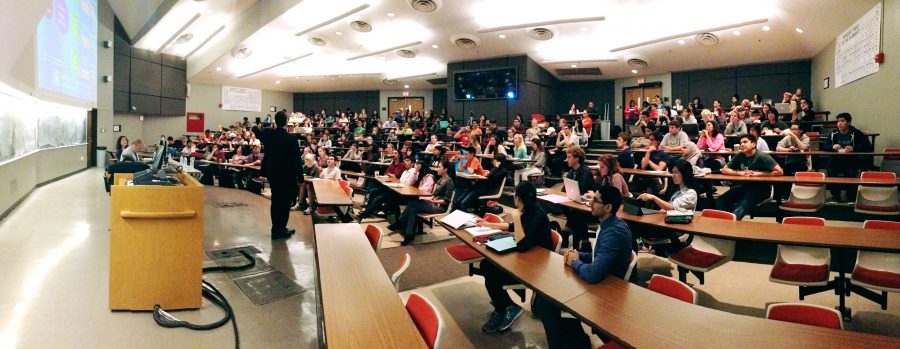Are you a CNS student looking to graduate on time? You have every reason to do so: the tuition rebate, the savings in tuition dollars, the constant encouragement from advisers and administrators, an earlier start in the workforce, just to name a few.
But that might become more difficult now that University administrators have decided to end a summer program from the provost’s office that promised additional funds to departments in different colleges if they could “teach more students than their historical target,” according to David Vanden Bout, associate dean in the college and bearer of bad news to department representatives in a meeting Dec. 5.
Provost Gregory Fenves, for his part, explained the cancellation of the Summer Enhancement Program as necessary because it had become “clear that [it] did not have the desired campus-wide impact.”
CNS can continue to fund the extra courses out of its own pocket, Fenves said, but with a flat budget and an ever-growing student body, it won’t be able to pull that off.
What does that mean for this summer? As the Texan reported Friday, roughly one-third fewer classes in the summer of 2015.
For CNS students who need plentiful summer courses in order to graduate on time, this could mean extra money spent on tuition, rebates lost and additional student loan debt piled on.
The college administration has assured the Texan that it is taking great pains to facilitate on-time graduation for all its students. As CNS Dean Linda Hicke told the Texan, “We are being as efficient as possible across the entire college; we make every effort to have classes available for students to graduate on time.”
We don’t doubt Hicke’s sincerity, but with each cut it becomes just that little bit harder for each student seeking a spot in a required class to get through in four years, especially with the growing enrollment of CNS.
We understand that budget issues are a perennial problem for the schools and colleges. But those budget issues, as with CNS, are precisely why the Summer Enhancement Program was needed in the first place. Even if the program wasn’t having quite the desired impact, cutting it altogether sends a message to students that the University’s bottom line is more important than theirs.
This speaks to a much larger issue confronting the University as it prepares to embark upon a new governorship and a new presidential administration. Which of the University’s commonly stated goals is more important: keeping costs down in the face of decreased state funding or increasing four-year graduation rates? And when those priorities are at odds, which one should win out?
For us, it’s clear. The University should find ways for all its students to have the greatest number of opportunities to graduate on time, even if it means cuts from other areas. We hope Governor-elect Greg Abbott, President William Powers Jr.’s successor, the UT System Board of Regents and the Legislature will come to a similar consensus starting in January.
















